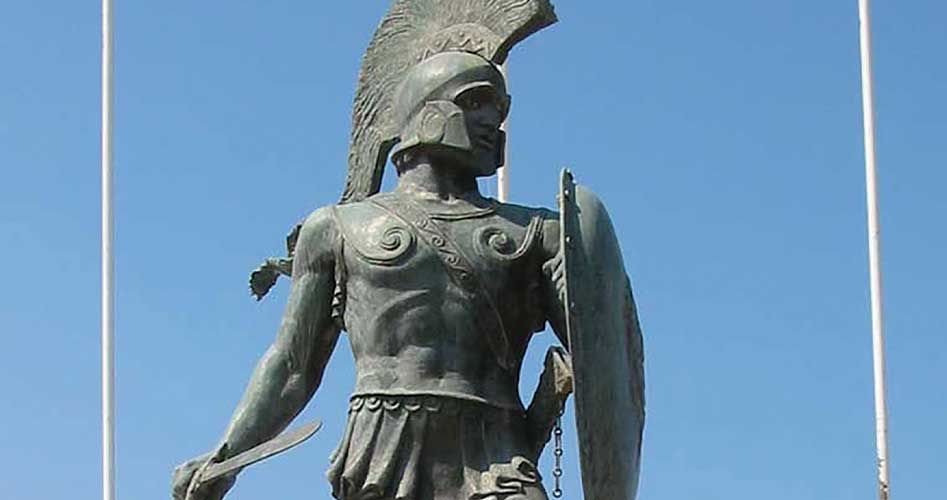
Ancient Fighter for Freedom
Upon the defeat of the Persians at the Battle of Marathon, King Darius of the Persian Empire came to believe that his failure to conquer the Greeks was the result of insufficient forces committed to the expedition. Convinced that with a larger army the Greeks could be vanquished, he laid plans for a new campaign. However, his plans were interrupted by a revolt in Egypt, which occupied him until his death in 486 B.C. His successor and son, Xerxes I, continued the work of suppressing the revolt, since Egypt was an important province of the Persian Empire. However, the new Persian king was not initially enthusiastic about another war against the Greeks. His chief advisor and cousin, Mardonius, nevertheless continued to pressure him. Herodotus quotes him as telling the king, “Master, it is not fitting that they of Athens escape scot-free, after doing the Persians such great injury. Complete the work which thou hast now in hand, and then, when the pride of Egypt is brought low, lead an army against Athens. So shalt thou thyself have good report among men, and others shall fear hereafter to attack thy country.” Herodotus suggests that Mardonius’ true motive was that “he longed for adventure, and hoped to become satrap of Greece under the king.”
Xerxes’ uncle Artabanus, not wishing to see his nephew take unnecessary risks, argued to the contrary: “I counselled thy father, Darius, who was my own brother, not to attack the Scyths, a race of people who had no town in their whole land. He thought however to subdue those wandering tribes, and would not listen to me, but marched the army against them, and ere he returned home lost many of his bravest warriors. Thou art about, O king, to attack a people far superior to the Scyths, a people distinguished above others both by land and sea.”
Xerxes found the counsel of his cousin Mardonius more convincing and, upon completion of the suppression of the Egyptian revolt, set out to assemble a mighty host to crush the Greeks once and for all. That task took him four years. Every province of the empire was bidden to contribute its quota of soldiers along with equipment and supplies, all of which the king gathered together at Sardis, in western Asia Minor.
JBS Member or ShopJBS.org Customer?
Sign in with your ShopJBS.org account username and password or use that login to subscribe.

 Subscribe Now
Subscribe Now
- 24 Issues Per Year
- Digital Edition Access
- Exclusive Subscriber Content
- Audio provided for all articles
- Unlimited access to past issues
- Cancel anytime.
- Renews automatically

 Subscribe Now
Subscribe Now
- 24 Issues Per Year
- Print edition delivery (USA)
*Available Outside USA - Digital Edition Access
- Exclusive Subscriber Content
- Audio provided for all articles
- Unlimited access to past issues
- Cancel anytime.
- Renews automatically

